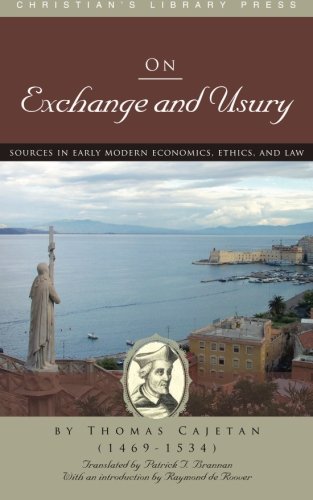June 23, 2014
June 13, 2014
New Issue of the Journal of Markets & Morality (17.1)
May 22, 2014
Argument Outline: Why Religious Freedoms Apply to For-Profit Corporations
May 06, 2014
Now Available: ‘On Exchange and Usury’ by Thomas Cajetan
Christian’s Library Press has released a new translation of two treatises on exchange and usury by Thomas Cajetan (1469-1534), a Dominican theologian, philosopher, and cardinal.
Although best known for his commentaries on the Summa of Thomas Aquinas, Cajetan also wrote dozens of other works, including short treatises on socioeconomic problems. Continue Reading...
May 05, 2014
Explainer: The Supreme Court’s Ruling on Government Prayer
March 11, 2014
City Of Grand Rapids Continues To Deny Acton’s Application For Property Tax Exemption
February 04, 2014
Hobby Lobby Owners Speak Out on HHS Mandate
October 03, 2013
Property Rights, Rule of Law, and the Spark of the ‘Arab Spring’
August 28, 2013
Raphael Lemkin: The One-Man NGO Against Genocide
July 08, 2013
